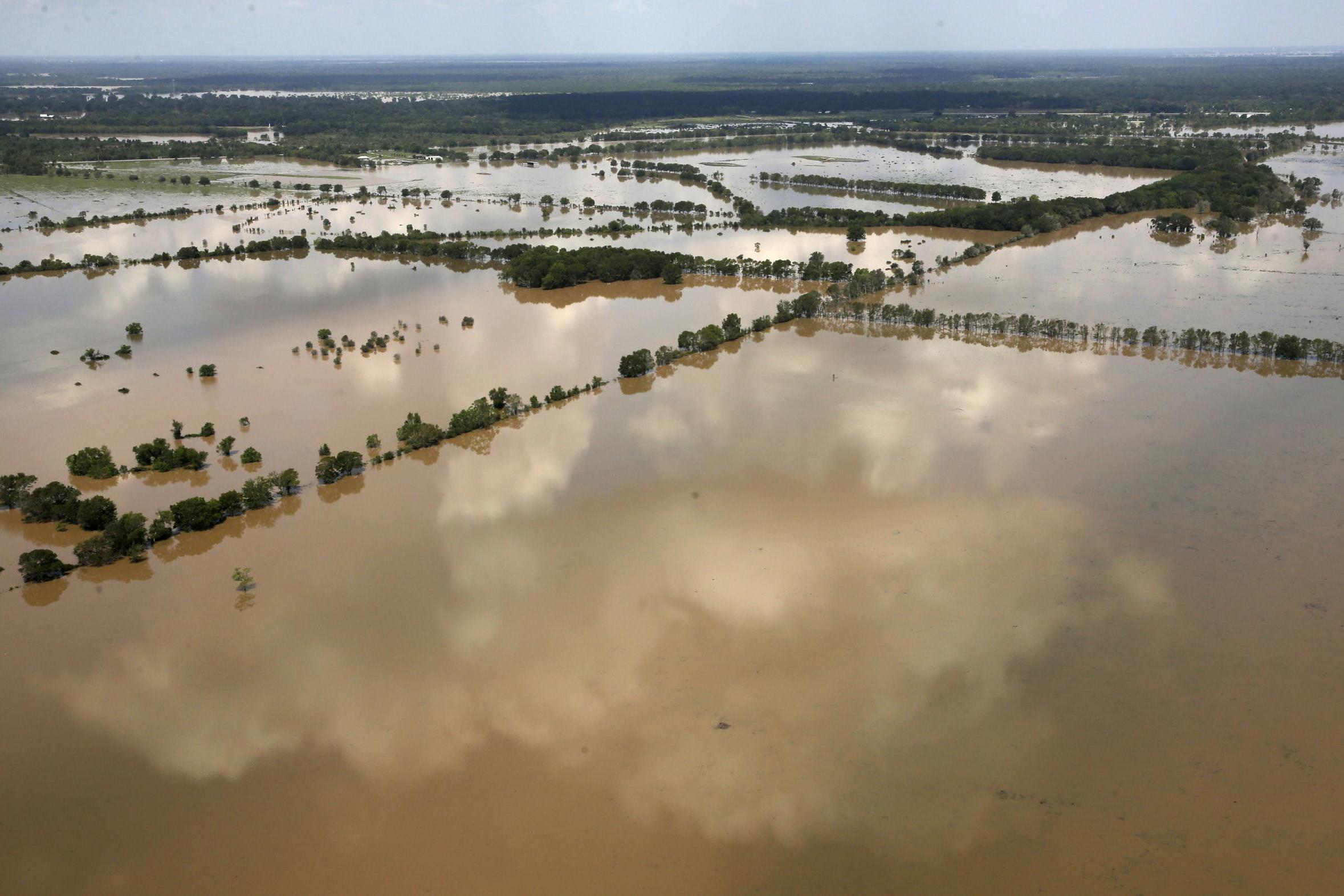Hurricanes are an unlikely reminder that gender bias could actually kill you
A study found that hurricanes that were assigned an obviously female name caused significantly more deaths than those with a male name

When Hurricane Harvey swept through the US, leaving death and devastation in its wake, the last thing on anyone’s mind would have been the unconscious gender bias that dominates the communities we live and work in.
And rightly so. To date Harvey has claimed dozens of lives, and left tens of thousands of people homeless. The financial cost of the damage will be impossible to determine for months, but some estimate that Texas could need up to $125bn (£96bn) in government aid, which is more than the record-breaking $110.2bn (£85bn) package put together in 2005 after Katrina.
Economists at UBS expect the storm to have a “substantial” impact on US economic growth in August, and they think that the employment rate across Texas will fall in the short term too. Adding to the horror, it seems that Hurricane Irma is following in Harvey’s wake, and could be heading for areas already wrecked and reeling.
By naming these monster storms, it almost makes their impact more distressing. We’re bestowing upon them a personality – a reckless, brutal, murderous one, but an almost human-like one nonetheless.
I know it’s a completely ludicrous question during times of catastrophe of any calibre, but did Harvey live up to his name? Is the name terrifying enough? Or would he have claimed even more innocent lives had he been a Holly, a Helen or a Harriet?
In June 2014, researchers published a study in a journal called the Proceedings of the National Academy of Sciences, examining the influence of gender-based expectations on the human toll of hurricanes that are assigned names which are clearly male or female.
Though later fiercely challenged for its validity, the study found that hurricanes that were assigned women’s names cause significantly more deaths than those with men’s names.
The reasoning is depressingly simple, and has nothing to do with geology or physics: names lead to gender-based expectations about how severe a storm will be. This – embarrassingly – guides respondents’ preparedness to take protective action.

The tradition of naming hurricanes dates back hundreds of years, but in 1953 the US abandoned the practice of calling them after saints and places, instead assigning each storm a woman’s name.
It’s not completely clear why storms were deemed female – although the internet is crammed with predictably hilarious jokes about emotional havoc-wreakers – and the maritime tradition of referring to the sea as a woman may have played a part.
But in 1979, and in part thanks to a feminist called Roxcy Bolton – who is incidentally also credited with founding the first rape treatment centre in the US – storms became male too.
These days, the World Meteorological Organisation decides what a hurricane is called. According to the US National Hurricane Centre, for Atlantic hurricanes there is a list of names for each of six years. That means a list is repeated every seventh year.
Names are retired if a hurricane is considered to have been so destructive that continuing to use it would seem insensitive or inappropriate. Sandy was retired in 2012, for example, and Irene the year before. Dennis, Rita, Stan and Wilma shared their retirement year with Katrina.
The 2014 study in stormy sexism involved conducting a series of experiments. One gave over 100 participants a map and a possible scenario of how a fictional hurricane would develop. Participants were split into three groups. All were given the same information, apart from the name of the imagined hurricane.

The first group’s was named Alexander, the second group’s was called Alexandra, and a control group’s hurricane simply went by “hurricane”.
Yes, you guessed it. Participants deemed Alexander to be significantly riskier than Alexandra, or the unnamed control storm. Several other experiments were done too, and the researchers concluded that they had identified a phenomenon that could be “viewed as a hazardous form of implicit sexism”.
As I mentioned, plenty of criticism has been lobbed at the study. Numerous academics have picked holes in the rigorousness of it, and fact-checking site Snopes has determined it “unproven”, but elements of it should give us reasons to think.
I’d be hard pressed to find someone who admits to being sexist. But that’s precisely the danger of bias. It’s often unconscious, and most of us are guilty of it. Most of the time an assumed pronoun – “How long has he been CEO? How many patients has he treated?” – will lead to a red face or an awkward silence at worst.
But that’s no reason for us to tolerate it. And gender bias is not the only area of offence.
The study overall may have its flaws, but there are countless examples in everyday life of us jumping to conclusions about someone's identity, gender, sexual orientation and background.
Unconscious bias might be the hardest kind of bias to change, but as ever, achieving awareness is the first step to creating progress.
And if after all the death, devastation and destruction, tropical storms could have any semblance of a silver lining, then perhaps reminding us of this would be just that.
Join our commenting forum
Join thought-provoking conversations, follow other Independent readers and see their replies
Comments
Bookmark popover
Removed from bookmarks